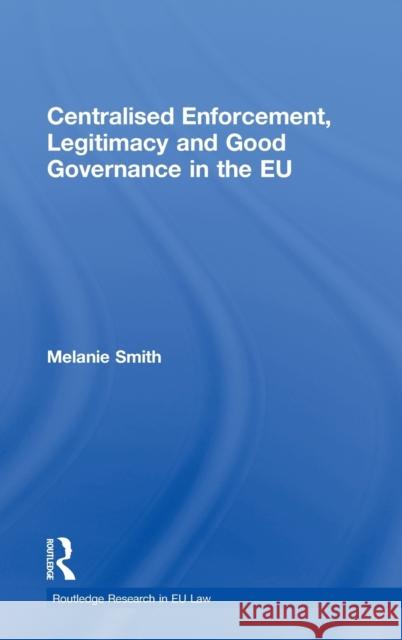Centralised Enforcement, Legitimacy and Good Governance in the Eu » książka
Centralised Enforcement, Legitimacy and Good Governance in the Eu
ISBN-13: 9780415467841 / Angielski / Twarda / 2009 / 272 str.
Centralised Enforcement, Legitimacy and Good Governance in the Eu
ISBN-13: 9780415467841 / Angielski / Twarda / 2009 / 272 str.
(netto: 699,68 VAT: 5%)
Najniższa cena z 30 dni: 705,23
ok. 16-18 dni roboczych.
Darmowa dostawa!
Article 226 EC is the central mechanism of enforcement in the EC Treaty, and remains unchanged since the original Treaty of Rome. This book examines Article 226 in the light of contemporary debates including concepts such as democracy, legitimacy, good administration and good governance in the EU.
Article 226 EC is the central mechanism of enforcement in the EC Treaty, and has remained unchanged since the original Treaty of Rome. It forms part of a triumvirate of provisions in the EC Treaty that are dedicated to the enforcement of the broad spectrum of Member State obligations under the Treaties, along with Article 227 EC and Article 228 EC. Article 226 provides the European Commission, as guardian of the Treaty, with a broad power of policing Member States’ conduct, and confers jurisdiction on the European Court of Justice to pronounce whether or not the Member State’s conduct is compatible with EC law. Essentially, this study seeks to move academic discussion of the enforcement mechanism away from an entrenched historical perspective of a negotiation forum focused on the sole function of effective enforcement, by examining Article 226 in the light of more contemporary debates including concepts such as democracy, legitimacy, good administration and good governance in the EU.
The book is interdisciplinary in nature, looking at law in its political context, political science and public administration. It focuses on how the institutions interact and react to competing policy pressures, and explores the tensions that lie at the heart of legitimacy in the actions of public actors, using the normative lenses of good administration, good governance and legitimacy. The book engages with primary and secondary material (such as reports, communications, case law, case studies, complaints and academic literature) complemented by the use of elite interviews with relevant actors.











